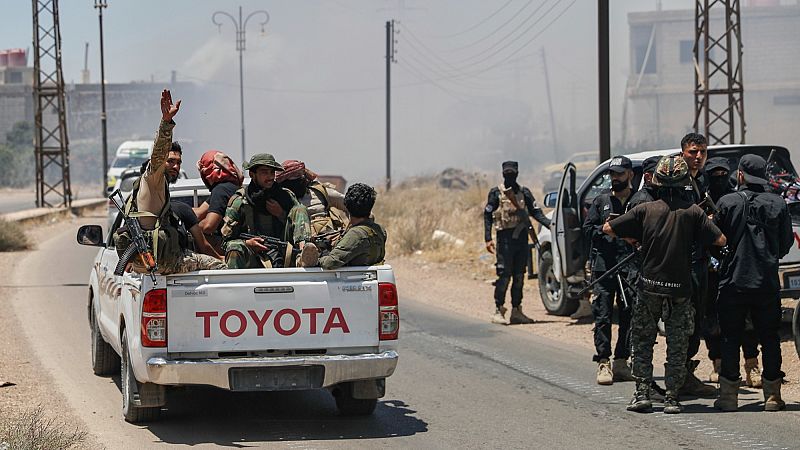
Renewed Ceasefire and Escalating Tensions in Southern Syria
A renewed ceasefire between Syrian government officials and Druze leaders was announced on Wednesday evening, following several days of violent clashes that had escalated into a major crisis. The truce came after an earlier agreement, declared just a day prior, collapsed quickly, raising doubts about the stability of the current arrangement. The new agreement was reported by Syrian state media and confirmed through a video statement by a Druze leader.
The clashes have been concentrated in the southern city of Sweida, where government forces and Druze armed groups have been engaged in intense fighting for days. The situation has drawn international attention, especially as Israel has taken direct action to address concerns over the safety of the Druze community.
Israeli Airstrikes and International Concerns
Hours before the ceasefire announcement, Israel launched a series of airstrikes targeting locations in central Damascus. The Israeli government cited the need to protect the minority Druze community from ongoing violence. This move was followed by statements from Israeli Foreign Minister Gideon Sa'ar, who criticized the lack of international response to the persecution of minorities in Syria.
Sa'ar highlighted a pattern of violence against various minority groups in the region over the past six months, including mass killings of Alawites in northwestern Syria and constant hostility toward Kurds in the north. He also mentioned the burning down of an ancient church in As-Suweyda province, following an attack on another church by the Islamic State group the previous week.
Strategic Interests and Regional Stability
Sa'ar emphasized that Israel's interests in Syria are clear and limited. First, maintaining the status quo in the southern region near the border is crucial for national security. Second, preventing threats from emerging in the area and protecting the Druze community, with whom Israel shares a strong relationship, is a priority.
He also stressed that Israel will not allow any military threat to develop in the south of the country. In response to the recent violence, Israeli forces conducted an airstrike targeting the entrance to the Syrian General Staff compound in Damascus. The Israeli Defence Forces (IDF) stated that their actions were in line with directives from the political leadership and that they remain on high alert for potential scenarios.
Reinforcements and Demands for Withdrawal
In addition to the airstrikes, Israeli army spokesperson Avichay Adraee announced plans to reinforce the number of forces along the security fence on the border with Syria. The decision was made to prevent any military threat from emerging in the southern region.
Defence Minister Israel Katz directly addressed Damascus, demanding that Syrian forces withdraw from Sweida and leave the Druze community alone. He reiterated that Israel would not abandon the Druze in Syria and would enforce the approved disarmament policy.
Escalation in Sweida Province
Tensions in Sweida province have escalated into open conflict, with armed clashes between Druze and Bedouin groups resulting in dozens of casualties. The situation has raised concerns about the long-term stability of the region, particularly given the historical presence of Druze militias during Syria's 14-year civil war.
The Druze, a religious group that split from Ismaili Shi’ism in the 10th century, are primarily concentrated in Sweida and certain Damascus suburbs. While many Druze in Syria have expressed reluctance for Israel to intervene, some factions within the community have shown skepticism toward the new authorities in Damascus.
As the conflict continues, the international community remains watchful, hoping for a lasting resolution that ensures the safety and stability of all communities involved.
